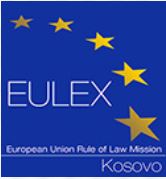Kosovo 3: Carabinieri and gendarmes of the MsU, on the ground
(B2 in Kosovo) Market in Vucitrn, a small town in northern Kosovo, between Pristina and Mitrovica. Italian carabinieri and French gendarmes are on routine patrol. Here, Armani pants or Levi's 501 jeans are displayed at 5 euros. But men are not there for that. Moreover, "there is no legislative arsenal in Kosovo to repress this counterfeiting “, confirms a European expert.
One of the objectives of the Multinational Specialized Unit (MSU), attached to KFOR, is indeed to gather information and get to know the population better. Getting in touch with the population and gaining their trust is therefore essential. Objective achieved apparently. Shopkeepers don't hesitate to chat with the police, in Italian or Albanian (with a translator), or invite them to have a cup of tea. The MSU is a somewhat special force. Made up of 340 police officers with military status (French gendarmes and Italian carabinieri), it “ can intervene throughout Kosovo, anywhere, anytime “, explains captain Alessandro Coassin. Its mission involves several issues. In addition to "information", the MSU can be called upon to help maintain order, train Kosovar police officers or KFOR (NATO) soldiers, escort VIPs or investigate serious crime (mafia, terrorism, weapons, etc). It has in reserve the GIS, the special intervention group based in Italy, capable of intervening in the event of hostage-taking and relies heavily on the other elements of KFOR, in particular the KTM for the maintenance of order.
The whole difficulty of our mission is to find a proportionate response “says the captain. " Showing muscle—uniform and weapons—is important. But for citizens this can be seen as a provocation. We must give the impression to the population that we are returning to a normal situation ". It is also a question of handing over to the local police (the KPS).
“If we take their place all the time, Kosovo will never be autonomous,” explains captain Giorgio Broccone. " The question is not whether they work well or badly, but whether they work and gradually increase their capacity and resources. ". The Kosovar police are thus regularly trained – in maintaining order, escorting VIPs – and “increasingly operational”. Alongside the former Yugoslav police or the Kosovo Liberation Army (UCK), it includes "young people who have the will", despite a derisory salary (200 euros per month). The transition to European command, with the ESDP Police mission, will simplify our task", explain our officers. Even though the reports are good » with the MINUK Police (the auxiliary force of the UN for the police), a Nordic will never react like a Mediterranean. So, " having colleagues on the other side is always easier. We are sure to have the same reactions, the same functioning ».
